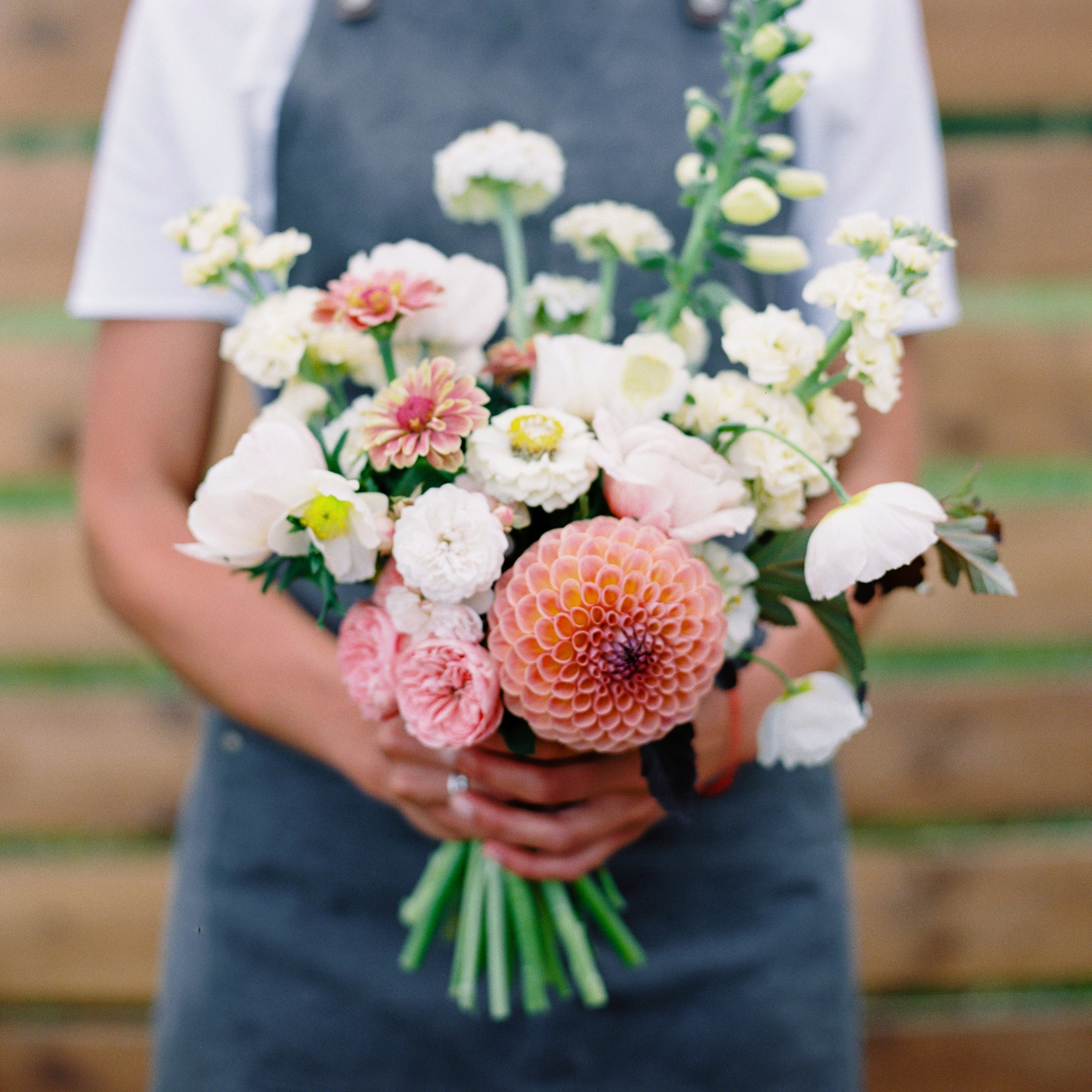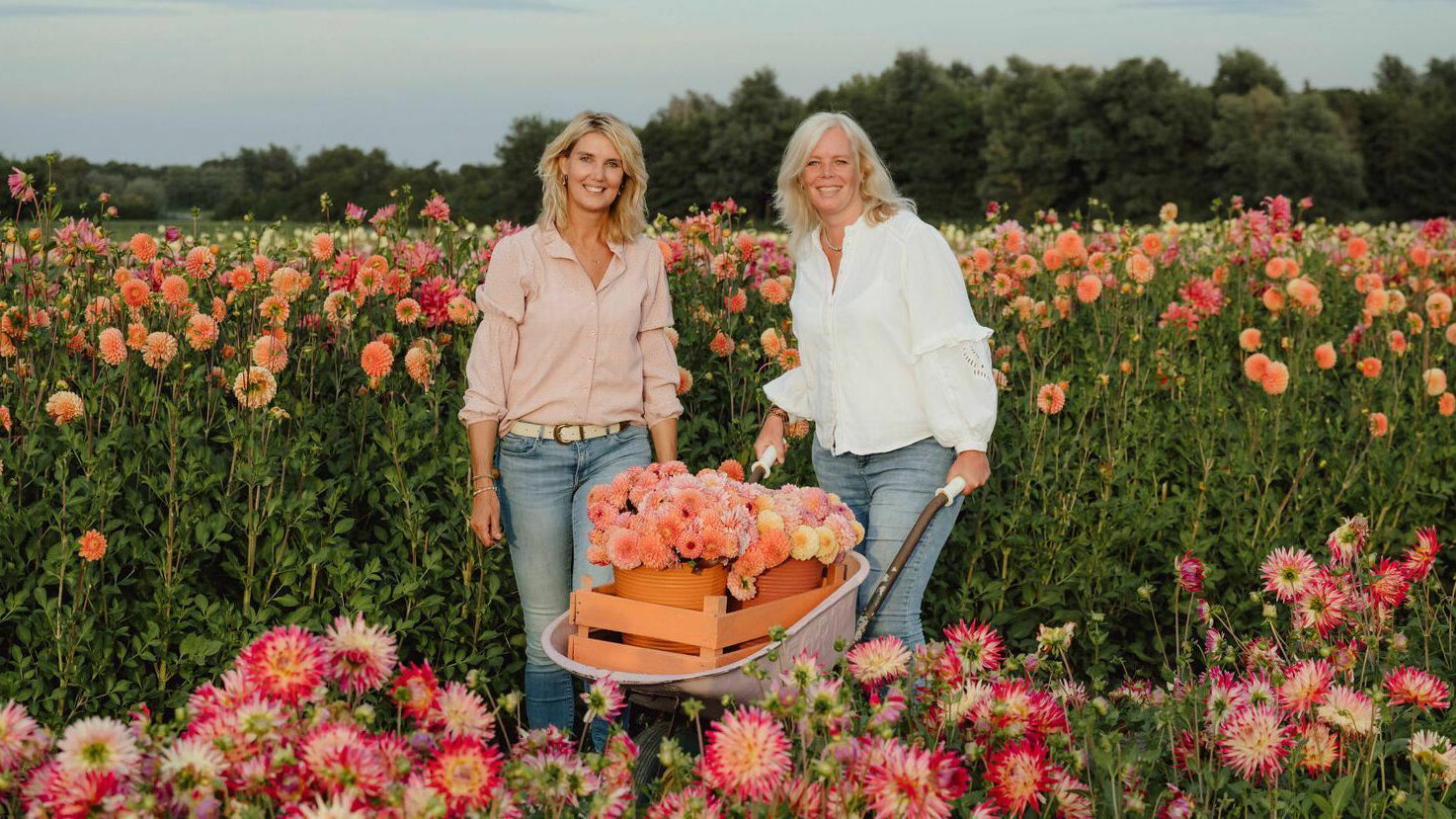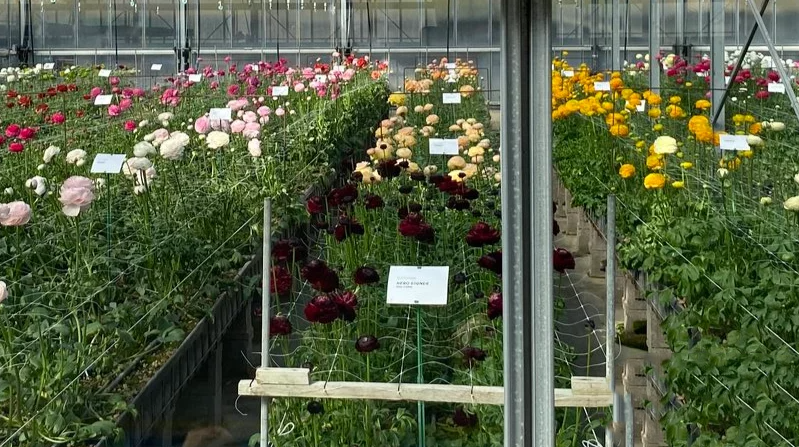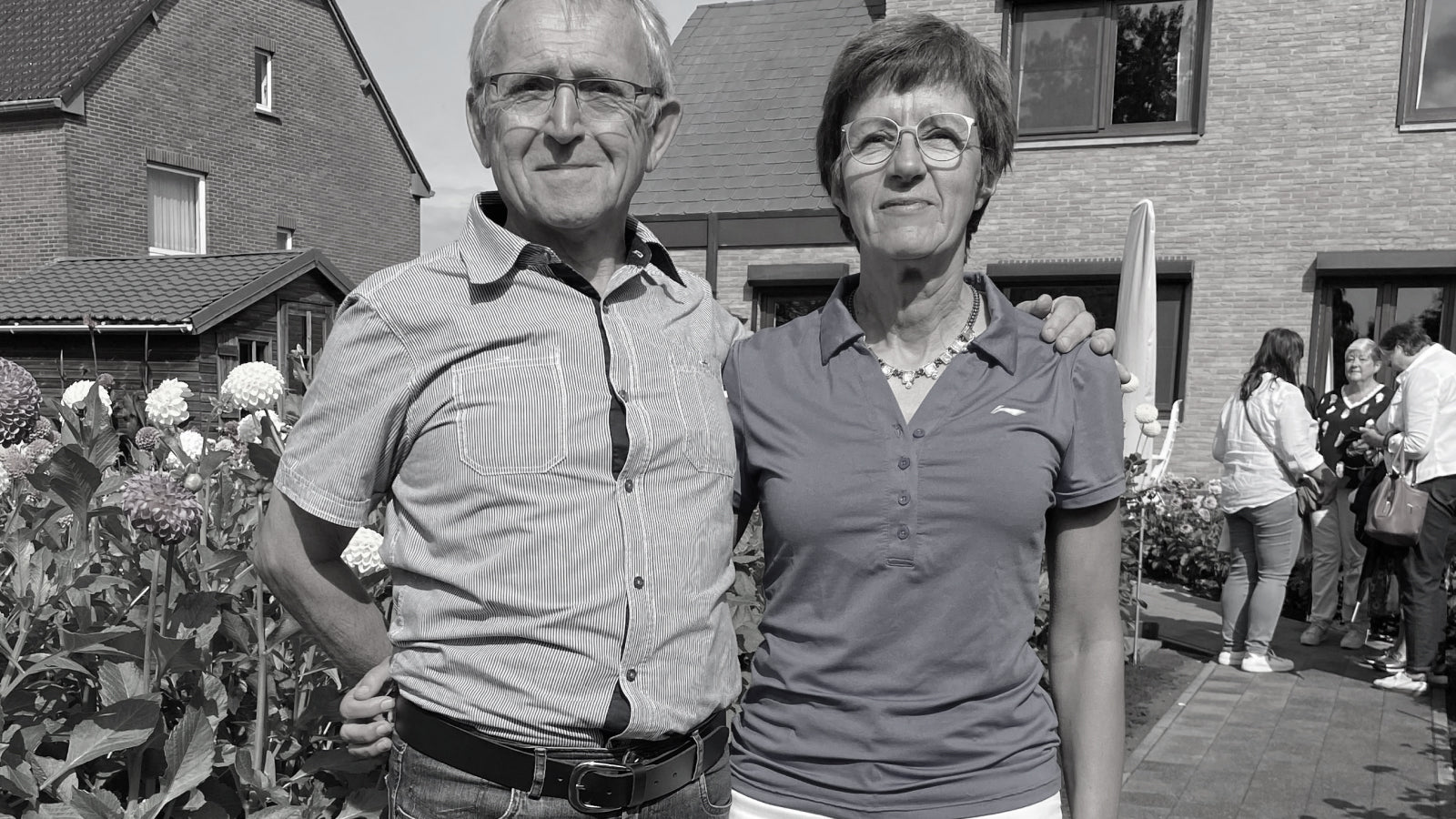We have recently visited Marlies Weijers, CEO of FAM Flower farm, one of the largest dahlia tubers producers in the world. Marlies and Linda, the driving forces behind FAM Flower Farm, which consists of two Dutch FAMily flower farms located in the flower bulb region, next to Keukenhof in Lisse. Marlies and Linda have been goods friends since the school, and both married a grower – Marlies married Hubert who specialized in dahlias and owned Weijers dahlias nursery and Linda married Henk, who owned Van der Slot Tulip & Daffodil nursery.
Please tell us a few words about the history of your business. How did it all start? We have read a really nice introduction in your annual magazine about Hubert’s part in the business. What was the turning point and what did you aim for then founding FAM?
The dahlia business was started by Hubert around 30 years ago and it was only business-to-business sales to exporting and trading companies and we never knew where the tubers were going. We felt detached from the people who were growing the dahlias.
It was also a matter of price in B2B sales – a difference of a few cents per tuber and the tubers were sold to different trading companies. Some years we couldn’t predict the demand for certain varieties and some of them could be left without demand. And we decided to change that founding FAM Flower Farm and going to people via different social media as well as opening our doors to the people so they could enjoy the beauty and see the whole growing process.
We can see many beautiful varieties in your spring bulbs and dahlia webshop. What is the process of adding a new variety to your assortment?
We grow around 250 dahlia varieties. Each year we buy a few new varieties from dahlia breeders. The flower type, color and form should be authentic and different from the existing in our range. It should be stable during storage and grow large enough tubers. Sometimes we buy just one or two tubers of new varieties. We grow these varieties for 3 years to see if all flowers are equally beautiful. If so, we will start increasing our stock until we have enough tubers to sell.

We hear feedback from our customers – florists, designers and dahlia-lovers from Facebook and Instagram. We also analyze our most-sold varieties and take decision based on those inputs.
How do you cooperate (interact) with breeders? Have you thought of launching your own breeding company?
The dahlia mutates very easily but to find a new and unique dahlia variety that meets all requirements to develop takes a lot of time. It is a separate profession that we do not have time for ourselves because of the busy nursery so we don’t breed dahlias. Sometimes we find a different flower in the field that looks promising. We harvest the tuber separately and plant it next spring to see what comes up. We also might come to new varieties (or mutants) when we replicate tubers with culture tissue methods. But in most cases the new varieties we receive are not stable enough to be reproduced commercially.
How does the commercial process of dahlia tubers look like (very brief)? What is the most important (or challenging) part in each process?
Many people expect the flowers in the field to be cut and sold, but most dahlia growers produce and sell tubers. The season begins in February-March. The dahlia tubers are propagated in a greenhouse. After the potted tuber starts sprouting the cuttings are taken. The cuttings are planted in soil and start rooting. When the cuttings are planted in the field by the end of May. The plants grow all summer to produce tubers. Each cutting will produce a tuber. The flowers are mowed from those tubers intended for sales each 7-10 days to make sure that all energy goes to tubers. Flowers are usually left on the tubers intended for taking cuttings so we can check the quality and also because of the control documents by the Dutch control organisation by the government. Otherwise it’s not possible to trade the tubers.

How do you collaborate with other growers on the issues which you face?
We are challenged by EU directory to become 100% organic by 2030 and working in collaboration with many other growers to develop biological methods to protect plants from pests and diseases. Every year we create experimental garden with a number of dahlia growers to test new biological solutions that can be applied to dahlias.
We have read with a lot of delight about the sustainability label “On the way to PlanetProof”. Could you share a few words about this? What limitations does it mean and what benefits provide?
Our dahlia nursery is the only nursery in the world with "On the Way to Planet Proof" quality mark. This is an independent quality mark for more sustainable products. We are always working on developing good soil life: we no longer plough the land but only dig the topmost layer of the crop, so that the soil life remains intact, and the worms keep soil aerated. Healthy roots make the plant more vital and stronger and can thus prevent crops from falling ill.
The use of crop protection has been greatly reduced over the years and we continue to innovate to keep it as low as possible. We already use biological products to combat aphids, thrips and spider mites for the tubers we sell. It goes without saying that even those are used only when absolutely necessary.
Flower strips are applied to increase biodiversity and pollinators.
We do not use tap water. When there is a shortage of rainwater, we use ditch water. But we only do this in extreme drought when they do not yet have enough roots and as little as possible because the strongest plants grow when they do so naturally with only from the soil via the roots.
Do cut flowers remain part of your business? Why / why not?
We stopped cutting dahlia flowers a few years ago because it is a labour-intensive activity, especially in the peak season, with little profit. Now that the dahlia is popular again we might try cutting flowers again, only there is a lot of other work at the flower farm that also needs to be done during this period.
Seeds assortment is a new addition to your business. How did you come to this idea? Do you plan to add more annuals varieties?
We thought to enlarge our offer to flower-lovers and not limit ourselves to dahlia tubers and bulbs (tulips and daffodils) offer. We found this initiate is valued by our customers and will work to increase our annual flower range.
How do you see major tulip/daffodils and dahlia industry trends and developments for next 5 years?
We think the management practices will be more robotized and more advanced technics will be applied, not limiting drone disease/pests detection or GPS tracking.
We also see that more and more people are interested and becoming involved in gardening so certainly having its own small flower farm for own needs will continue. Many young people are getting involved into growing vegetables and gardening as well as our society becomes more conscious.
What major goals are set by FAM for the coming 5 years?
We plan to stay connected with our audience and create more and more positive experiences for people when growing flowers. We love our mission and are happy to be part of people’s happiness.





Leave a comment
This site is protected by hCaptcha and the hCaptcha Privacy Policy and Terms of Service apply.